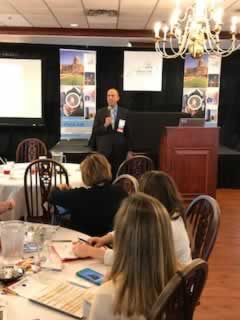Dealing with Mental Illness in the Workplace
I have joined the Louisville Chapter of SHRM – Society of Human Resource Managers. I attended one of their monthly meetings recently with the Topic of Dealing with Mental Illness and the ADA-Americans with Disabilities Act.
I have had a lot of training on making accommodations for those with disabilities but not when it comes to Mental Illness. The speaker, Kelley Gannon, COO of Centerstone Kentucky, indicated we really needed to understand mental illness before we can think about making accommodations.
Everyone has mental health and bad mental health days but Mental Illness is a Chronic disease, meaning it is ongoing. Some examples include hallucinations, delusion, extreme sadness, ongoing anxiety, Bipolar disease, etc.
HR professionals are not required to diagnose employees but to be aware of the symptoms (different appearance, mood, etc.) and reach out to those who can help such as your counselors from EAP-Employee Assistance Programs.
Ms. Gannon suggested some of the following steps to address employees with mental illness:
- Soft and slow voice – calm voice ( I can’t listen when you yell)
- Make eye contact
- Simple and short questions
- Keep them focused on the issue
- Be Transparent
- Reflect by saying it seems like, so you think, sounds like, etc
Non- Helpful responses are:
- “I know how you feel”
- Don’t intrude into their personal space – in fact double the space
- Don’t give flippant responses like “don’t worry”
- Don’t disrespect them – give them respect
- Don’t tell them their issue is not valid
She also indicated these employees can be needy and may want to talk to you often so you might need to set limits. For example, tell them “I only have 5 minutes to give you today” and ask them to address these three questions
- What is the purpose of your call – how can I help?
- What is the most important thing you need me to know right now?
- How can I help with that most important thing /concern right now?
Of course, every case of mental illness is different and each case may need different accommodations. So, seek expert advice on mental illness, employment attorney’s related to ADA regulations and places like Job Accommodation Network-JAN or Center of Accessible Living




